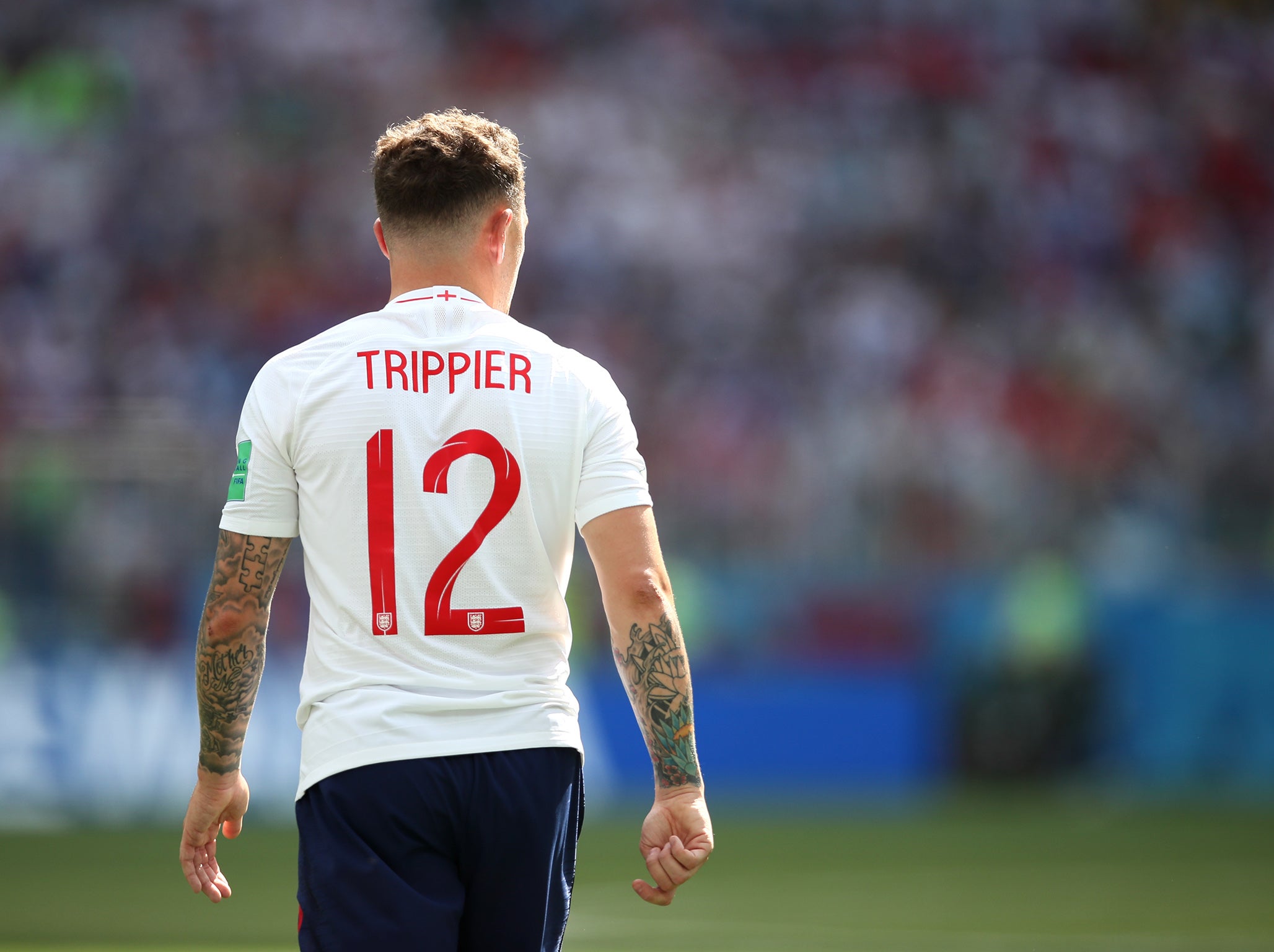England vs Panama, World Cup 2018: How Kieran Trippier vindicated Gareth Southgate’s big idea, scouting report

Your support helps us to tell the story
From reproductive rights to climate change to Big Tech, The Independent is on the ground when the story is developing. Whether it's investigating the financials of Elon Musk's pro-Trump PAC or producing our latest documentary, 'The A Word', which shines a light on the American women fighting for reproductive rights, we know how important it is to parse out the facts from the messaging.
At such a critical moment in US history, we need reporters on the ground. Your donation allows us to keep sending journalists to speak to both sides of the story.
The Independent is trusted by Americans across the entire political spectrum. And unlike many other quality news outlets, we choose not to lock Americans out of our reporting and analysis with paywalls. We believe quality journalism should be available to everyone, paid for by those who can afford it.
Your support makes all the difference.You’ve probably heard the story already. Gareth Southgate and Steve Holland travelling around Russia for last summer’s Confederations Cup. Dinner at a posh restaurant on the Black Sea. And a conversation that would ultimately determine England’s tactical approach for this World Cup, as both men decided to rip up the approach of both Roy Hodgson and Sam Allardyce in favour of an adventurous 3-3-2-2.
“The process was: what gives us the best chance of not conceding many goals?” Holland recalled in Repino earlier this week. “And what gives us the best chance of having more control of the game with the ball? They were the two factors really, given the type of players that we had.”
Both men had experience with a three-man defence. Southgate played in one on the world stage under Terry Venables and Glenn Hoddle. Meanwhile Holland was still revelling in the afterglow of Chelsea’s title triumph, won with an innovative 3-5-2 which proved so successful that even the famously obdurate Arsene Wenger had adopted it by the end of the season.
There was just one vital question that needed to be answered, sometime between the end of the main course and the desert trolley being wheeled out. “‘Do we have the wing‑backs?’ But then we realised the wing‑backs are the least of our problems: we have all sorts of different types of wing‑backs. So it made sense.”
The first two England performances at this World Cup would appear to have already vindicated their decision. And yet it is unlikely that Holland and Southgate settled on the idea having truly factored in the man who would go on to become their first-choice right wing-back in Russia. Because at that point Kieran Trippier had only just made his full international debut – in a 3-2 friendly defeat by France – and was not even an automatic pick for Tottenham Hotspur, having started just six league matches in the 2016/17 campaign.
So it is testament to the incredible progress made by Trippier for club and country that he has managed to make the full-back position his own and then some: a position Southgate and Holland not only deem to be the most vital in their newly designed formation, but also where competition for a starting spot is at its fiercest. He was arguably England’s man of the match against Tunisia and was outstanding again today, impressing with his movement and delivery in a record-breaking win.
He took less than a minute to launch England’s first attack of the game – playing a perfectly weighted through-ball down the flank for Ruben Loftus-Cheek run onto – and shortly afterwards set up the first goal of the afternoon, swinging in yet another sumptuous corner, this time for John Stones to head home. England have not looked this much of a threat from set-pieces since the days of David Beckham.
As is to be expected from a 6-1 thumping and England’s biggest ever win at a World Cup, all of Trippier’s most significant contributions were going forward rather than in defence, and he also played an important role in the superb fourth goal. He kicked start the training-ground move which culminated in a second Stones header, while it was again his dead-ball delivery that led to Kane being wrestled over at the end of the first-half, and England’s fifth.
The start Trippier has made to this tournament is all the more remarkable considering his first season as a first-choice player at Tottenham was solid, if not spectacular. Mauricio Pochettino spent much of the season alternating him with erratic £23m summer signing Serge Aurier, and until the start of this summer he had played only six times for England, with his place in Southgate’s squad far from certain.

But the decision to employ Kyle Walker – one of the few truly world-class footballers Southgate has at his disposal – in England’s three-man defence rather than out wide has, so far, been something of a masterstroke. That early penalty against Tunisia aside, Walker has adapted well to a position that is not too dissimilar from his role at title-winning Manchester City, in turn handing Trippier the freedom to roam forward and provide exceptional service for Tottenham team-mate Harry Kane.
There are, of course, much tougher tests on the horizon, and Trippier’s ability to seriously defend at international level is yet to be seriously tested. Belgium – in particular Yannick Carrasco and Eden Hazard – will ensure Trippier spends far more time in his own-half than bombing forward. Beyond that, Senegal and Colombia will not be content to sit back either.
Yet it should not be forgotten that the thinking behind moving Walker backwards with Trippier to his right was ultimately a defensive move: using Walker on the right of the back three gives Trippier more cover going forward, as well as helping England to better defend against the counter-attack on that side.

And so the true benefits of England’s new system – and Trippier’s pivotal role in it – are perhaps yet to be truly revealed. Nevertheless Trippier’s superb start to the Russian World Cup has shown that England’s attack has the ability to take them far in this tournament, while also vindicating the boldest decision yet taken in Southgate’s short reign as England manager.
Join our commenting forum
Join thought-provoking conversations, follow other Independent readers and see their replies
Comments